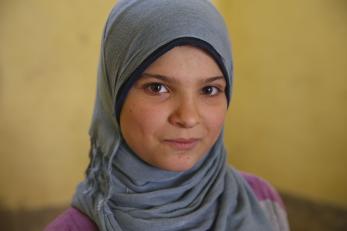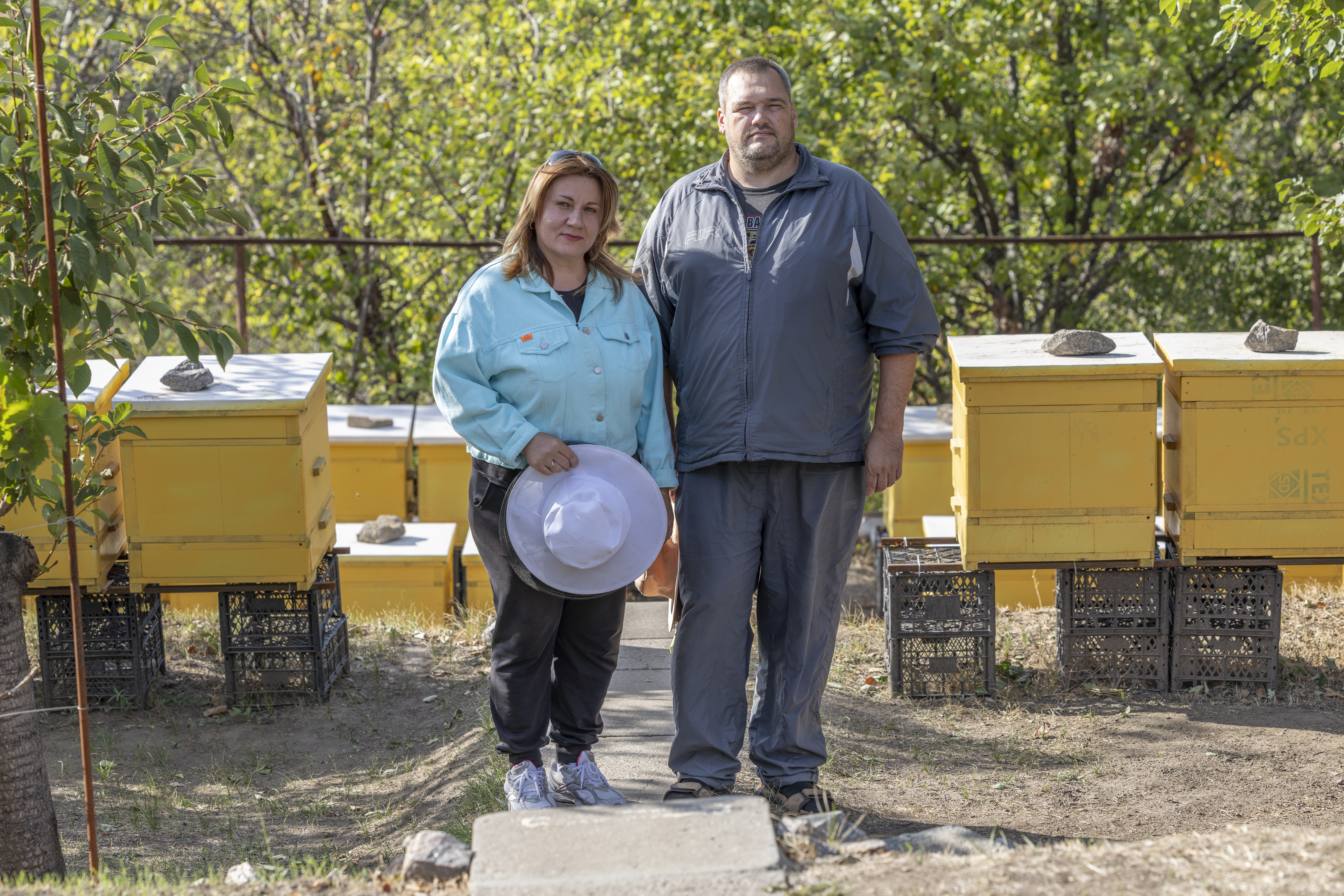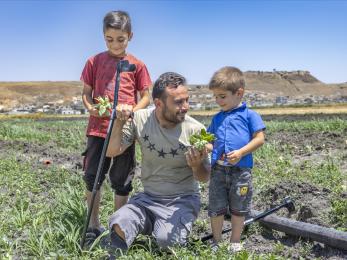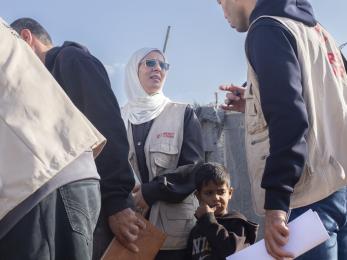In crowded Lebanon, Syrian refugees are forced to shelter in unlikely places
At first glance, Douris in northern Lebanon's Bekaa Valley is a seemingly normal rural village. Poultry farms and cowsheds dot the landscape. But hidden from obvious view is a growing problem — Syrian refugees who have fewer and fewer safe places to live.
A look inside the poultry farms and the barns reveals a sad truth — refugee families are now living where chickens and cows lived just a year ago. In many cases, they are paying over $100 per month just to have a leaking roof over their heads and cow manure under their feet.
The Al Azab family is just one of thousands of Syrian refugee families who have resorted to living in unusual accommodations. Past several rows of former chicken coops (now inhabited by other refugees), the Al Azab family has turned a cowshed into their temporary home.
“My family name [Al Azab] means ‘scavenger’,” says the father Abid. “We are suffering here and just trying to survive. It is a very hard life.”
He and his wife and eight children share a single room that is about 10 feet by 12 feet in size. In the corner, you can still see the trough where the cows used to feed — a stark reminder of their situation.
Currently, Lebanon has the highest proportion of refugees of any country in the world — over one million in a country of just five million. That means that one in five people in Lebanon is a Syrian refugee, and the strain on the small country has become overwhelming.
The influx of new people has caused prices to skyrocket and increased competition for jobs as refugees try to find work. All of these factors contribute to tensions between refugees and their host communities.
And because there are no official refugee camps in Lebanon, Syrian families must find places to shelter on their own — places of last resort that others would never consider calling home. They end up in these barely habitable structures partly because they can’t afford to pay rent for proper living accommodations, and partly to avoid triggering negative reactions from local communities, which are severely strained by the refugee crisis.
When living conditions are inadequate, Mercy Corps provides repairs and improvements to make shelters safe, warm and more comfortable. For the Al Azab family’s cowshed, Mercy Corps was able to help by repairing and painting the walls, insulating the roof, and installing two water tanks and a sink.
Dealing with difficult living conditions is just the beginning of the challenges that refugee families face in Lebanon. Over half of the refugees from Syria are children. Most have witnessed horrific violence and many have seen their homes destroyed by bombs or have lost family members.
They arrive as refugees in a foreign country and typically do not have access to educational opportunities or even the chance to play or make friends. Currently, 68 per cent of Syrian refugee children and adolescents are out of school, and many have not seen the inside of a classroom in more than three years.
The Al-Azab children have not been able to attend school since arriving in Lebanon over a year ago. Before they fled Syria, violence forced them to move several times, and they missed an additional year and a half of school.
“I haven’t been to school in over two years,” says Houda, Abid’s 13-year-old daughter. “I was a very good student in Syria. I loved my school and miss going to class and seeing friends. Here my parents don’t let me do anything. I don’t have any freedom.”
Like hundreds of thousands of Syrian refugee girls, Houda is now forced to stay inside helping with chores. Her parents are afraid for her safety since they now live in a place where they have few friends and no community ties.
For many refugee children, the pressure to generate income (for boys) or help with home chores (for girls) prevents them from pursuing their education goals. Girls kept home by their families for safety reasons have reported frightening levels of physical and social isolation.
To help address the long-term effects of displacement, Mercy Corps is also working with children and adolescents affected by the crisis.
Mercy Corps currently runs nine child-friendly spaces in south Lebanon and the northern Bekaa Valley focused on empowering play and providing psychosocial support for children who have endured loss, homelessness and other stresses that come with conflict.

Houda and her seven brothers and sisters all attend Mercy Corps’ children and youth programmes, and hope to be able to go back to school again.
“It is the best part of my day,” says Houda. “it is the only time my parents let me go out because they know the Mercy Corps child spaces are safe.”
“I don’t know what the future will bring,” says Houda, “but I have not lost my dream of becoming a doctor someday...or maybe an artist. I'm not sure yet.”
This work is reaching more than 6,000 children with psychosocial and recreational programmes that encourage interaction, self-expression, empathy and leadership. The programs also work to get children who have dropped out of school back into the education system.
With the winter descending, the harsh realities of refugee life are becoming even more urgent. For many Syrians, this will be their fourth cold season living far from home and with few basic necessities to stay warm. In addition to the shelter improvements, Mercy Corps is providing vouchers to families to buy warm blankets and clothing. We also distribute kits to newly-arrived refugees including mattresses, blankets, kitchen sets and hygiene supplies to help them set up their new life.
The sad reality of the continued conflict in Syria means that refugees face the harrowing prospect of years of displacement. Meeting their immediate needs is crucial, but we must also help them deal with longer-term challenges like learning a new language, finding stable work, getting their children back in school and making meaningful ties with their new communities.


